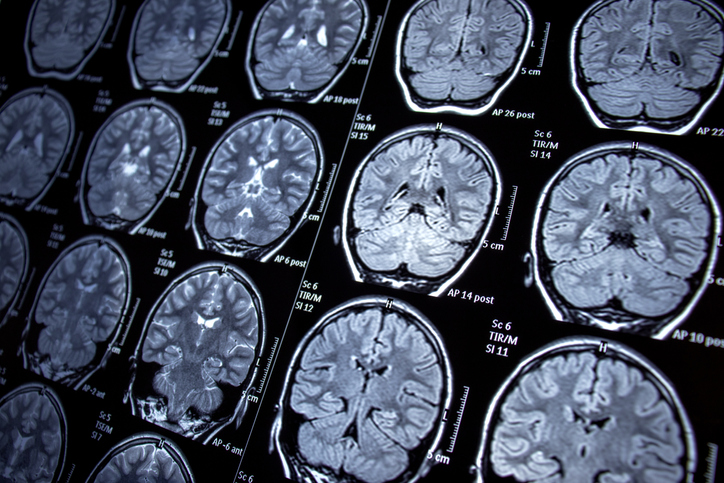Media Coverage
The work done by Northwestern University Feinberg School of Medicine faculty members (and even some students) is regularly highlighted in newspapers, online media outlets and more. Below you’ll find links to articles and videos of Feinberg in the news.
-
CBS News
–
Tips for surviving the Daylight Saving Time change
For folks who are adjusting their clocks, the body isn’t going to like getting up a whole hour earlier, so it’s best if you and your kids start adapting by going to bed and waking up fifteen to twenty minutes earlier each day. Prepping in advance is an especially good plan for teenagers, who are naturally programmed to stay up late and sleep late, and for anyone else in the family who is a night owl, said Dr. Phyllis Zee
, director of the Center for Circadian and Sleep Medicine at Northwestern University Feinberg School of Medicine in Chicago. Zee, who is also a professor of neurology at Feinberg, agreed: “For most younger children, moving their bedtime and wake time by about 10 to 15 minutes earlier starting three days before the time change can help them adjust to the social clock time change by Monday morning,” she said. -
WTTW
–
Lab-Leak Theory Resurfaces as House Republicans Investigate COVID-19 Origins
Republicans claim that early in the pandemic Dr. Anthony Fauci, then director of the National Institute of Allergy and Infectious Diseases and an advisor to President Donald Trump on the coronavirus pandemic, deliberately downplayed the notion that the virus may have come from a lab leak. However, infectious disease expert Dr. Robert Murphy, executive director of the Robert J. Havey Institute for Global Health at Northwestern University Feinberg School of Medicine has his doubts about this theory. “There’s four agencies in the government that have any kind of medical background, the CDC, NIH, the White House staff and Department of Defense. People say with almost certainty, which means 99% or more, it’s [COVID-19] is from the animals. There’s tons of epidemiological evidence that that is correct,” said Murphy.
-
NBC 5 Chicago
–
A Naperville Woman’s Heart Started Racing While Walking. A Year Later, Her Diagnosis Was Unexpected
Doctors at Northwestern Medicine are trying to raise awareness about an often misunderstood and underrecognized condition called CTEPH, which stands for chronic thromboembolic pulmonary hypertension. “Chronic thromboembolic pulmonary hypertension is a long-term complication after someone has an acute pulmonary hypertension is a long-term complication after someone has an acute pulmonary embolism or a blood clot in the lung,” said Mike Cuttica, MD, associate professor of medicine in pulmonary and critical care. The Naperville woman, experienced shortness of breath while out walking her dog. Dr. Cutica said CTEPH often starts with blood clots in the legs. “They break off the travel up into the heart and they cut pumped into the lung and they lodged in the blood vessels in the lungs, and that’s when it becomes a pulmonary embolism or blood clot in the lung,” Dr. Cuttica explained.
-
The Washington Post
–
Why daylight saving time is fun but bad for you
It’s easy to love daylight saving time. Once you get past that grogginess of the time change, you’re left with an extra hour of daylight in your spring and summer evenings. The trade-off is that your body will lose an hour of early morning sun, and experts say that lost sunlight will be missed. Morning sun is key to maintaining our circadian rhythms, sleep-wake cycles and overall health. Phyllis Zee, MD, PhD, a neurologist and chief of sleep medicine at Northwestern University Feinberg School of Medicine, said without that sunlight, we can slip into circadian misalignment — “when your internal body clocks fall out of sync with that of the sun clock and your social clocks. Lawmakers have proposed adopting a permanent change to daylight saving time — it’s called the Sunshine Protection Act. The Senate has approved it, but the bill died in the House amid questions over whether year-round daylight saving time was safe or healthy.
-
WBEZ Chicago
–
Meet the Northwestern scientist in charge of new bioscience lab funded by Mark Zuckerberg and Priscilla Chan
Zuckerberg and Chan have invested $250 million in a move that aims to put Chicago at the center of future biotech research. :Our science work is focused on curing, preventing or managing all disease. That’s what drove us to start the San Francisco biohub, now we’re launching the second,” said Chan. Northwestern professor Shana Kelley will be the president of the new project. “I was absolutely delighted. This is going to be a really exciting effort bringing together three great Chicago universities and with the resources we have from the Chan/Zuckerberg initiative, we’re going to be able to make a big impact,” said Kelley when she found out she would be leading the lab.
-
ABC News
–
When does daylight saving time begin? Everything you need to know about ‘springing forward’ in 2023
Daylight saving time begins at 2 a.m. local time on Sunday, meaning the sun sets later in the evening – but most Americans lose an hour of sleep. Many experts have pointed to the time change’s adverse health effects, and polls show that the majority of Americans would rather avoid the switch back and forth. Time changes mess with sleep schedules, a potential problem when so many people are already sleep-deprived, says Dr. Phyllis Zee, a sleep researcher at Northwestern University Feinberg School of Medicine. And numerous studies have linked the start of daylight saving time in the spring with a brief spike in car accidents, and with poor performance on tests of alertness, both likely due to sleep loss.
-
Yahoo! News
–
Experts debunk 5 common myths about abortion
Abortion has been a hot-button topic in the U.S. for years, but debate about the consequences of having an abortion ignited again last year after the Supreme Court overturned Roe v. Wade, the landmark ruling that guaranteed the right to abortion in America. There continue to be several myths surrounding abortion that Yahoo! News wanted to debunk. One is that abortion isn’t safe. This is simply “not true,” said Dr. Lauren Streicher, a clinical professor of obstetrics and gynecology at Northwestern University Feinberg School of Medicine. “It is far more likely for a woman to die during pregnancy and childbirth than from having an abortion,” she adds.
-
ABC 7 Chicago
–
How to protect your sleep, physical health ahead of Daylight Saving Time
Daylight Saving Time officially begins Sunday, March 12 at 2 a.m. The clocks will spring forward one hour, giving us more hours of daylight during the spring and summer months. According to Northwestern Medicine, during the week after the shift to DST, research shows an associated rise in: Cardiovascular disease, with a 24% higher risk of heart attacks; injuries, including a 6% spike in fatal car accidents; stroke rate, which increases by 8%; mental health and cognitive issues, with an 11% spike in depressive episodes; digestive and immune-related diseases, such as colitis, which increase by 3% in females over age 60. Thankfully, there are some steps you can take before Daylight Saving Time to protect your Circadian rhythm. One of the best things you can do is keep a sleep routine. Aim for seven to nine hours of sleep each night. The night before Daylight Saving Time begins, go to bed one hour earlier than normal to prepare. Eliminate any sleep disturbances, like caffeine, alcohol and blue light exposure one to two hours before bedtime.
-
USA Today
–
Is there an alternative to statins for high cholesterol? Bempedoic acid just passed a key test
More than a quarter of Americans over 40 take medications to lower their cholesterol, most of them statins. But not everyone can tolerate statins or wants to. Now a new study confirms that bempedoic acid, approved in 2020, not only lowers cholesterol, but also reduces the risk for heart attack and stroke. High levels of LDL cholesterol drive heart attacks and strokes, and decades of data show that reducing it lowers the risk of cardiovascular events, said Dr. Sadiya Sana Khan, a cardiologist and assistant professor at Northwestern University’s Feinberg School of Medicine, who was not involved in the new study. “This is one of the most important factors we can modify,” she said. But huge numbers of people who might benefit from reducing their LDL levels aren’t treated, she said. “Here’s a new option, which I think is really exciting.”
-
TODAY
–
Many left wondering about effectiveness of colonoscopy after new study: What to know
If you’re at the age where colorectal screening is recommended to prevent colon cancer (between 45 and 75), you might see the new, landmark study published in the New England Journal of Medicine as somewhat of a reprieve since it found little to no decreased death risk from the screening method. Not so fast, experts say. There are some reason why this study – not the first randomized controlled trial of colonoscopy – might not have answered that question. “All this study shows is that many are hesitant to go for colonoscopy, but for the ones who undergo colonoscopy, there is a decrease in colon cancer mortality. In other words, we need to intensify efforts to educate people about the importance of colonoscopy!” tweeted Dr. Leonidas Platanias, director of Robert H. Lurie Comprehensive Cancer Center of Northwestern University and professor of hematology and oncology and biochemistry and molecular genetics at Northwestern University Feinberg School of Medicine.






